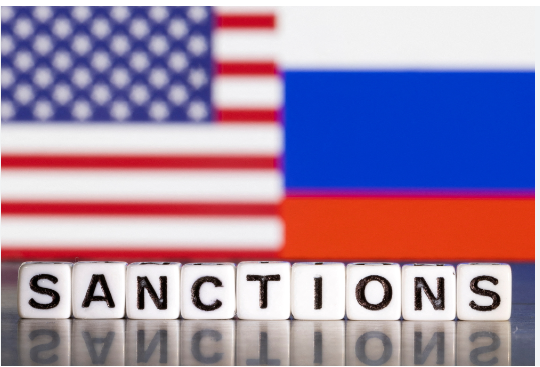Voice of America reports that the Biden administration is working on making sanctions targeting Russia more effective by explicitly warning Russian trading partners that they run legal risks doing business with banned entities. As Putin is getting ready to initiate a second final assault on Ukraine, Washington has turned its gaze to Turkey, to make sure the Russian leader doesn’t get an assist. Ankara is currently grappling with historic and horrifying earthquake which affected an estimated 14 million people, over an area surpassing 100K square kilometers. Sanctions, even symbolic, could cause a confidence shock for the currency market, but also grant President Erdogan the excuse to divert attention from the quake to Western hostility.
Brian Nelson, U.S. Undersecretary of Treasury for terrorism and financial intelligence, recently met with government officials and banking sector representatives in Turkey to discuss how U.S. sanctions on Russia affect Turkish businesses as part of a regional tour that also included the United Arab Emirates.
Trade experts told VOA that the U.S. is focusing on depriving Russia’s military of advanced equipment by threatening to enact secondary sanctions on businesses that still trade with Russia.
“In engaging with sanctioned Russian entities, Turkish businesses and banks could put themselves at risk of sanctions and a potential loss of access to G7 markets,” Nelson told the Bank Association of Turkey, in remarks that were also published online afterward.
Dual-use technology exports feared
Pointing to the rise in Turkey’s exports to Russia last year, Nelson urged companies to take extra precautions, especially when it comes to dual-use technology transfers that could be used by the Russian military-industrial complex.
The dual-use term refers to items or know-how that could potentially be used for both civilian and military purposes, such as semiconductors.
Last week, Aviacon Zitotrans, a Russian cargo airline company, which, according to the Treasury, sought to use a Turkish company and Turkish diplomats to facilitate the sale of Russian defense equipment abroad, was brought under the scope of the sanctions regime.
Experts point out that Turkey doubled its exports to Russia in 2022.
According to Marshall Billingslea, former assistant secretary for terrorist financing at the Treasury Department, the exported materials include things such as semiconductors.
“Turkey has gone from virtually no exports of semiconductors to Russia in 2021 to now being the fourth-largest supplier,” he told VOA.
Focus on Russian trade partners
Brian O’Toole worked as a senior adviser to the director of OFAC during previous administrations and played a central role in designing the sanctions regime in response to Russia’s aggression in Ukraine. He said Treasury appears to be clearly signaling that it is focused now on banned exports to Russia, in particular semiconductor exports. But he said Treasury likely has other interests in Turkey.
“Military is top priority and, two, is Russian oligarchs and elites using Turkey as a safe haven for assets when they’ve been sanctioned elsewhere. The third is the backfill component. Turkey shouldn’t be taking advantage of the West pulling out.”
NATO member Turkey, which has maintained good relations with Kyiv and Moscow, has opposed blanket Western sanctions on Russia, saying it must pursue its own policy in order to protect its interests.
Ankara, which previously condemned Russia’s invasion, saying it fully supported the territorial integrity of Ukraine, has said in the past it would not allow international sanctions to be circumvented.
But U.S. Treasury official Nelson told Turkish bankers that Russian oligarchs have continued to buy property and yachts in Turkey. He urged enhancing due diligence beyond checking the U.S. sanctions list.
“The screening should also capture companies and proxies that sanctioned Russian and Belarusian actors use as fronts,” he warned.
Russian sanctions evasion
Studies of Russia’s economy this year indicate that while sanctions have driven up prices and made some high-tech equipment harder to find, importers have found new ways of getting banned equipment into the country through third countries.
An investigative report by the Wall Street Journal based on trade data shows more than a dozen Turkish companies exported plastics, rubber products, transport vehicles and generators last year and that those items were purchased by 10 Russian companies on the U.S. sanctions list.
The Turkish Embassy in Washington did not reply to a request for comment on the alleged sanctions violations before publishing.
Follow our English language YouTube videos @ REAL TURKEY: https://www.youtube.com/channel/UCKpFJB4GFiNkhmpVZQ_d9Rg
And content at Twitter: @AtillaEng
Facebook: Real Turkey Channel: https://www.facebook.com/realturkeychannel/
